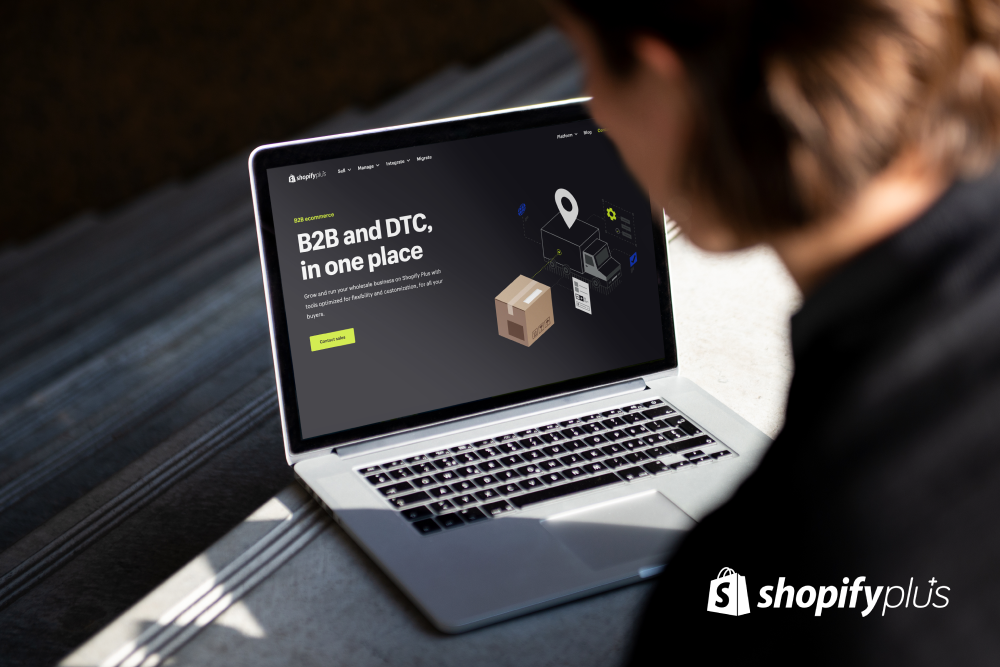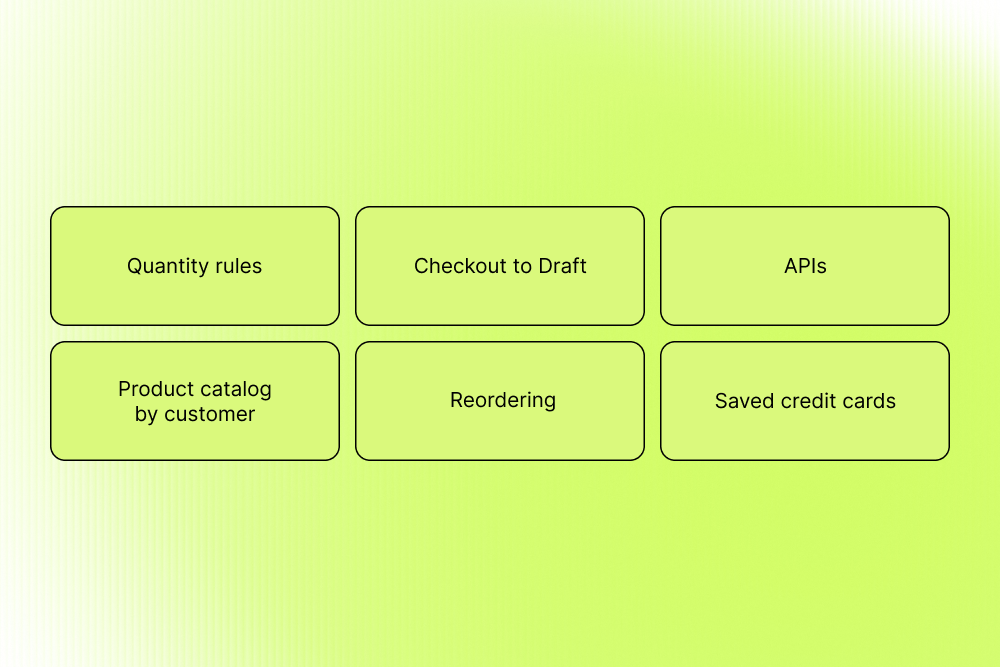08 Jun 2024
Shopify B2B: Important Changes and New Features Coming Soon for Merchants

Novatize, a Shopify Plus partner agency, is excited to share the latest news about wholesaling on the Shopify platform. As you know, B2B on Shopify is the future of wholesale, and since the launch of Shopify B2B in June 2022, dozens of new features and improvements have been added.
Some of the new features include: customer-specific product publishing, quantity rules, draft order validation, easy replenishment capability, secure credit card storage, and new B2B APIs.
Shopify also announced that they will deprecate the Plus Wholesale channel, which will no longer be available to merchants in April 2024. Novatize will let you know what to do in this situation.
With B2B on Shopify, merchants have access to a powerful suite of wholesale features built right into the core of the platform. This means they can take advantage of all the benefits of Shopify for their wholesale business, including APIs, third-party apps, features, themes, and more.
Download the free guide : 10 tips to launch your B2B eCommerce Shopify
10 Tips to Launch Your B2B eCommerce Shopify
Download the free guide now!
Shopify B2B: What is it?
Shopify B2B is a suite of features that allows you to sell products to other businesses through the online store, without the need for applications designed to incorporate the complexities of B2B commerce.
Shopify B2B: For What Type of Business?
Shopify B2B is for businesses that have the following needs:
- Company accounts with multiple users
- Complex price lists with product and customer specificities
- Different payment methods for different types of customers
- Customized user experiences (e.g., custom themes or templates, specific email, multilingual client, etc.)
- Integration with ERP or other enterprise systems.
- Any other business rules specific to each client.

New Features Announced for Shopify B2B
Shopify Plus continues to deliver new features to enhance the B2B eCommerce experience. The new features allow merchants to optimize their workflow for bulk purchases, regular orders and customer management. Here’s a look at the latest updates to Shopify B2B that have caught the attention of Novatize’s experts:
Quantity Rules
Quantity rules allow merchants to set minimum and maximum quantities for products purchased by B2B customers. Quantity rules are useful for merchants who sell products in bulk or who offer discounts for large orders.
For example, a merchant selling wholesale clothing may set a minimum quantity of 50 units for each order. If a customer tries to buy less than 50 shirts, he will be redirected to an error page. Conversely, if a customer adds more than 50 shirts to their cart, the price per unit can be automatically adjusted to reflect their economy of scale.
Checkout to Draft
Checkout to Draft allows eCommerce companies to convert a shopping cart into a registered order without payment. This feature is especially useful for customers who need internal approval before finalizing their order. Customers can then go through a submission request and track the progress directly in their customer account.
For example, a merchant who sells customized products can allow customers to create baskets with saved quotes. Customers can then share these quotes with their team for approval before finalizing their order.
Product Catalogue by Customer
The per customer product catalog feature allows merchants to customize their product catalog for each registered customer. Merchants can display a different product catalog for each customer, based on their preferences, purchase history, sales agreement and access level. This new feature is compatible with other B2B features such as pricing and quantity rules.
For example, a merchant selling industrial products can display a different product catalogue for each registered customer based on their industry, territory or purchase history. Customers can then easily find the relevant products for their specific needs.
Repeat Order (Reordering)
The reordering feature allows registered customers to easily reorder products they have purchased in the past. Customers can simply access their purchase history and repeat their previous order with one click. B2B customers tend to make the same orders over and over again, so this can be a great time saver for customers.
For example, a customer who regularly orders office supplies can easily re-order a previous order rather than searching for all the products individually again.
Learn more about UX-experience best practices for your B2B eCommerce.
Saved Credit Cards
The saved credit card feature allows customers to save multiple credit cards for quick and easy payments in the future. Customers can save multiple credit cards and choose which card they wish to use for each order.
For example, a customer who regularly orders for multiple companies can register credit cards for each company to facilitate the payment process.
APIs
Shopify has also updated its API to allow developers to access more e-commerce data. The Shopify API is now more flexible and offers additional functionality for third-party applications. Developers can now access additional customer, order, payment and product data.
For example, a merchant selling cosmetics could use the Shopify API to create a third-party application that allows customers to personalize their order. The app could use the additional data from the API to provide personalized product recommendations based on the customer’s purchase history and preferences.
These new Shopify B2B features are important improvements for merchants looking to enhance their eCommerce experience. This is great news for Shopify Plus merchants who will be able to better manage their wholesale sales.
Not yet selling online to your B2B customers? Learn more about B2B eCommerce Implementation: Top 6 Challenges for an Optimized Launch
Considering Adobe Commerce (Magento) technology instead?
Learn more about success factors for successful B2B eCommerce planning with Magento 2 – Adobe Commerce
The End of Plus Wholesale Channel: What’s the Next Step for Merchants?
Shopify will depreciate the Plus Wholesale channel, which will no longer be available to merchants as of April 30, 2024.
Here are the recommended steps to encourage and help Plus Wholesale Channel merchants migrate to B2B on Shopify:
Migration to B2B on Shopify
The following resources are available to help merchants migrate their wholesale business to B2B on Shopify:
- Migration support for the wholesale channel.
- B2B on Shopify – Overview
- B2B on Shopify – Configuration Checklist
- Shopify Academy Course: Migrating to B2B on Shopify
- B2B Webinar Series: Building with us
Application Plus Wholesale Channel
The visibility of the application has been changed to “not listed” since February 6, 2023.
Shopify will no longer support new installations at this time. All B2B merchants must be directed to B2B on Shopify to sell wholesale.
Read more: Here’s a case study of a merchant on Shopify B2B.
To conclude,
Shopify’s new B2B features will allow merchants to market to B2B customers quickly and inexpensively. The improved shopping experience will allow merchants to stay competitive, increase customer loyalty and repeat business.
To learn more about Shopify B2B or to implement an eCommerce project, contact the experts at Novatize.
Download the free guide : 10 tips to launch your B2B eCommerce Shopify in 2022
📍 330-330 Saint-Vallier E Street, G1K 9C5, Québec, QC, Canada
10 Tips to Launch Your B2B eCommerce Shopify
Download the free guide now!
Inspired by what you’ve read?
Our team of experts can help you take your eCommerce to the next level!
